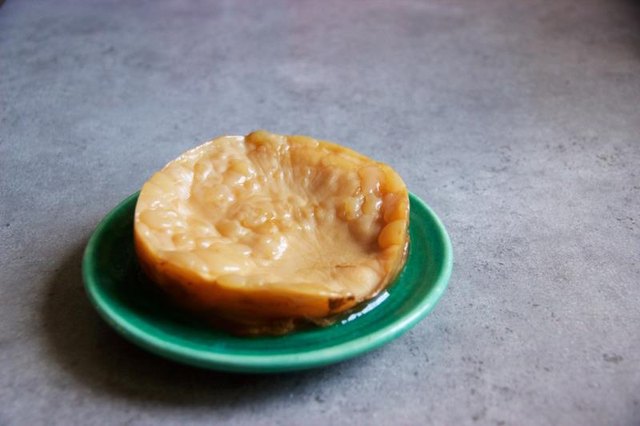Posted by Mary West
 Every day, battles are waged inside your gut between beneficial bacteria and pathogenic bacteria, the outcomes of which have far-reaching effects, often influencing social and emotional behavior as well as physical health.
Every day, battles are waged inside your gut between beneficial bacteria and pathogenic bacteria, the outcomes of which have far-reaching effects, often influencing social and emotional behavior as well as physical health.Research shows when you increase the beneficial bacteria in your gut through consuming probiotic-rich foods and supplements, you can make victorious outcomes over poor digestion and the skirmishes you’ve become uncomfortably accustom to. But what about the other, untold benefits of probiotics? After all, digestion influences nearly every bodily process.
10 Surprising Health Benefits of Probiotics
Probiotics are foods cultured with live beneficial bacteria, which include yogurt, kefir and fermented vegetables like sauerkraut. These healthful microbes may also be procured in the form of supplements, which should be taken in addition to eating the probiotic foods rather than as a substitution for them.1. Probiotics May Keep E.coli at Bay
In a study published in Applied and Environmental Microbiology, pigs were given feed supplemented with the probiotic Enterococcus faecium. The results showed it greatly reduced the numbers of pathogenic E.coli bacteria in the intestines. This microbe is one of the most common pathogens affecting pigs.2. Probiotics Help Prevent Tooth Decay
Research indicates Lactobacillus reuteri promotes healthy teeth and gums, helping prevent tooth decay and reducing inflammation of the gum tissue. This benefit is even more important because poor oral hygiene is associated with serious maladies such as diabetes and heart disease.3. Probiotics Help Reduce and Prevent Diarrhea
Harvard Medical School reports many studies that show probiotics can help reduce or prevent diarrhea from an infection. Diarrhea is also a common side effect of antibiotics; research indicates probiotics can help reduce the incidence of this problem as well.4. Probiotic Therapy May Alleviate Autism
Scientists have known that gut bacteria can affect social and emotional wellness, but a new study is the first to show negative changes in this bacterial population can contribute to autistic-like symptoms. In the study published in Cell, researchers found that autistic mice had leaky gut, a condition that has been reported in some people diagnosed with this illness. When they treated the mice with probiotic therapy, the leaky gut was healed and, amazingly, their autistic behavior was alleviated.5. Probiotics May Help Reduce Cholesterol
A small study presented at a recent American Heart Association meeting found Lactobacillus reuteri, a probiotic in dairy foods, lowered low-density lipoprotein cholesterol, or bad cholesterol, 12 points more than the control group. Moreover, the total cholesterol count was lowered by 9 percent.6. Probiotics May Help Prevent Eczema, According
A study published in the Journal of Allergy and Clinical Immunology discovered babies who are at risk of getting eczema may benefit from their mother’s consumption of probiotics. Allergy-prone mothers who had eczema were given probiotics two months before the birth of their baby and during the first two months of breastfeeding. The findings showed their babies had a significantly lower risk of developing the skin inflammation. Another study indicated that probiotic therapy early in life can also reduce a child’s risk of developing eczema by up to 50 percent.7. Probiotics May Prevent Respiratory Infections
Scientists reviewing studies from the Cochrane Library found probiotics seem to reduce the incidence of respiratory infections. In a another study published in the British Medical Journal, children in 18 daycare centers in Finland who were given milk enriched with probiotics had a 17 percent lower likelihood of contracting a respiratory infection than those who drank milk without the probiotics.Some probiotic studies show a strong benefit, while others have weak findings. But eating probiotic foods cannot hurt and it may prove to be very beneficial.
8. Probiotics Can Help Prevent Female Urogenital Problems
Several factors can upset the bacterial population in the female urogenital tract, permitting the overgrowth of harmful microbes. According to Harvard Medical School, probiotics may possibly restore the normal bacterial balance, thus helping prevent bacterial vaginosis, yeast infections and urinary tract infections.9. Probiotics May Help Your Baby to Cry Less
A 2007 study published in Pediatrics discovered breastfed babies whose mothers daily consumed a probiotic cried 194 minutes less than the control group. In a later study published in 2010 of the same journal, researchers found similar results.10. Probiotics May Help With Bloating, Gas and Constipation
Some yogurt companies are putting extra strains of beneficial bacteria in their product in hopes of providing more health benefits. An example is Dannon’s Activia, which contains an additional bacterial culture, Bifidobacterium animalis. John Hopkins reports on an Activia study that showed those who ate two 4-ouce servings per day experienced less abdominal bloating and discomfort along with more frequent bowel movements after a few weeks. Another study published in Alimentary Pharmacology and Therapeutics found yogurt with this bacterial culture alleviated the discomfort and bloating associated with irritable bowel syndrome.What we learn from this research is that the condition of the gut affects the entire spectrum of wellness. Therefore, improving the health of the bacteria in the intestine through probiotics may result in many health benefits.
Sources:
http://www.sciencedaily.com/releases/2013/12/131205141900.htm
http://www.naturalnews.com/043233_probiotics_bacterial_infections_pig_farming.html
http://www.shareguide.com/probiotics.html
http://www.healthline.com/health-slideshow/surprising-benefits-probiotics#1


